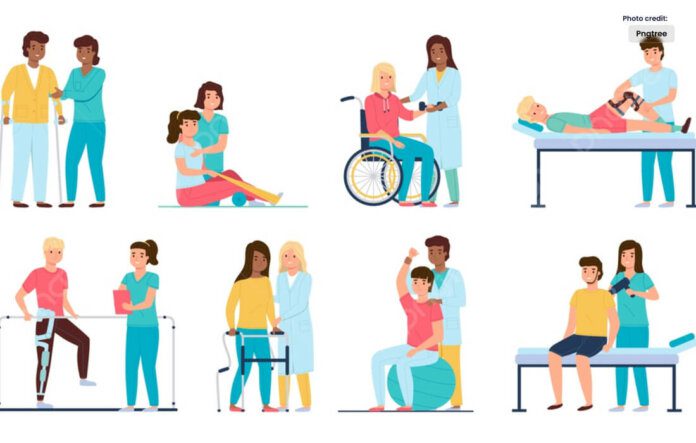Unlocking hope: free rehab program vital role in addiction recovery.
Millions of people worldwide are affected by addiction, which is a powerful foe. For people who are battling with substance misuse concerns, there is, fortunately, hope. Free rehab programs provide a lifeline to recovery for people in need, offering one way of hope.
The Significance of Free Rehab
For those who do not have the financial resources to obtain conventional recovery services, free rehab programs offer vital support. They provide a variety of free services, including treatment, medical attention, detoxification, and counseling. These programs are essential in assisting individuals in freeing themselves from the grip of addiction.
Holistic Healing Approach
Free treatment centers frequently take a wholistic approach to healing. This entails treating not just the psychological and social components of substance usage but also the physical aspects of addiction. These programs provide people the skills they need to reconstruct their life by offering comprehensive treatment.
The Power of Community
Free rehabilitation programs frequently encourage a sense of community among participants in addition to providing expert support. Sharing struggles and triumphs with people who are traveling a similar path may be quite beneficial. People who are struggling are reminded that they are not alone and that healing is possible.
Breaking the Cycle
Without help, it can be very challenging to stop the pattern of addiction. Free rehab programs provide an organized setting where people can develop coping mechanisms, social networks, and relapse prevention plans. This assistance is crucial in keeping people on the road to recovery.
Accessibility and Availability
The accessibility of free therapy is among its most alluring features. Since these services are frequently offered in numerous communities, it is simpler for people to access assistance without financial constraints. They can be located in a variety of locations, including churches, community centers, and government-funded facilities, ensuring that assistance is always close at hand.
Government Funded Rehab Programs
Numerous countries set aside funds to offer free or inexpensive addiction treatment programs. It’s important to look into the choices in your area as these programs vary by nation and location.
Typically, municipal health departments or addiction treatment centers are where you can locate government-funded rehab programs. These programs could include services for inpatient treatment, outpatient counseling, or detoxification.
Faith-Based Rehab Centers
Rehab facilities are run by a few religious institutions and faith-based organizations for no cost or at a reduced cost. These hospitals incorporate religion and spirituality into their treatment plans.
Consider getting in touch with your neighborhood churches, mosques, or synagogues for information on services and resources if you are open to a religiously based approach to rehabilitation.
Support Groups
Free resources are available for people in recovery from drugs and alcohol through support organizations like Alcoholics Anonymous (AA) and Narcotics Anonymous (NA).
Support groups can give you access to a helpful support network and sober peers who are aware of your issues, while they should not be viewed as a substitute for professional therapy.
Employee Assistance Programs (EAPs)
Check to see whether your place of employment has an employee assistance program if you have health insurance via your company. EAPs frequently offer private counseling and services for addiction treatment referrals. For additional details on these perks, contact your HR department.
Online Resources
Accessing information and tools for addiction rehabilitation is now simpler thanks to the internet. Numerous websites and apps offer free knowledge, resources for self-help, and online support networks. These tools can be a useful addition to established rehabilitation regimens.
State-Funded Programs
Some American states have their own programs to offer addiction treatment services in addition to government-funded rehabilitation centers. Since the eligibility requirements for these state-funded programs are frequently based on income, those with limited financial resources may be eligible for free or reduced-cost care.
Nonprofit Organizations
There are numerous charities and nonprofit groups devoted to aiding people with addictions. These groups frequently offer free or sliding-scale recovery services. The Salvation Army, Catholic Charities, and The Partnership for Drug-Free Kids are a few renowned nonprofit recovery facilities. Look for similar businesses in your region that might be able to help.
Conclusion
The availability of free recovery centers offers those battling addiction a ray of hope. They offer a holistic approach to treatment, are generally accessible, and offer important services. Most significantly, they provide people an opportunity to recover from addiction and start over in their life. If you or someone you know needs assistance, you might want to look into the free treatment programs in your area.




